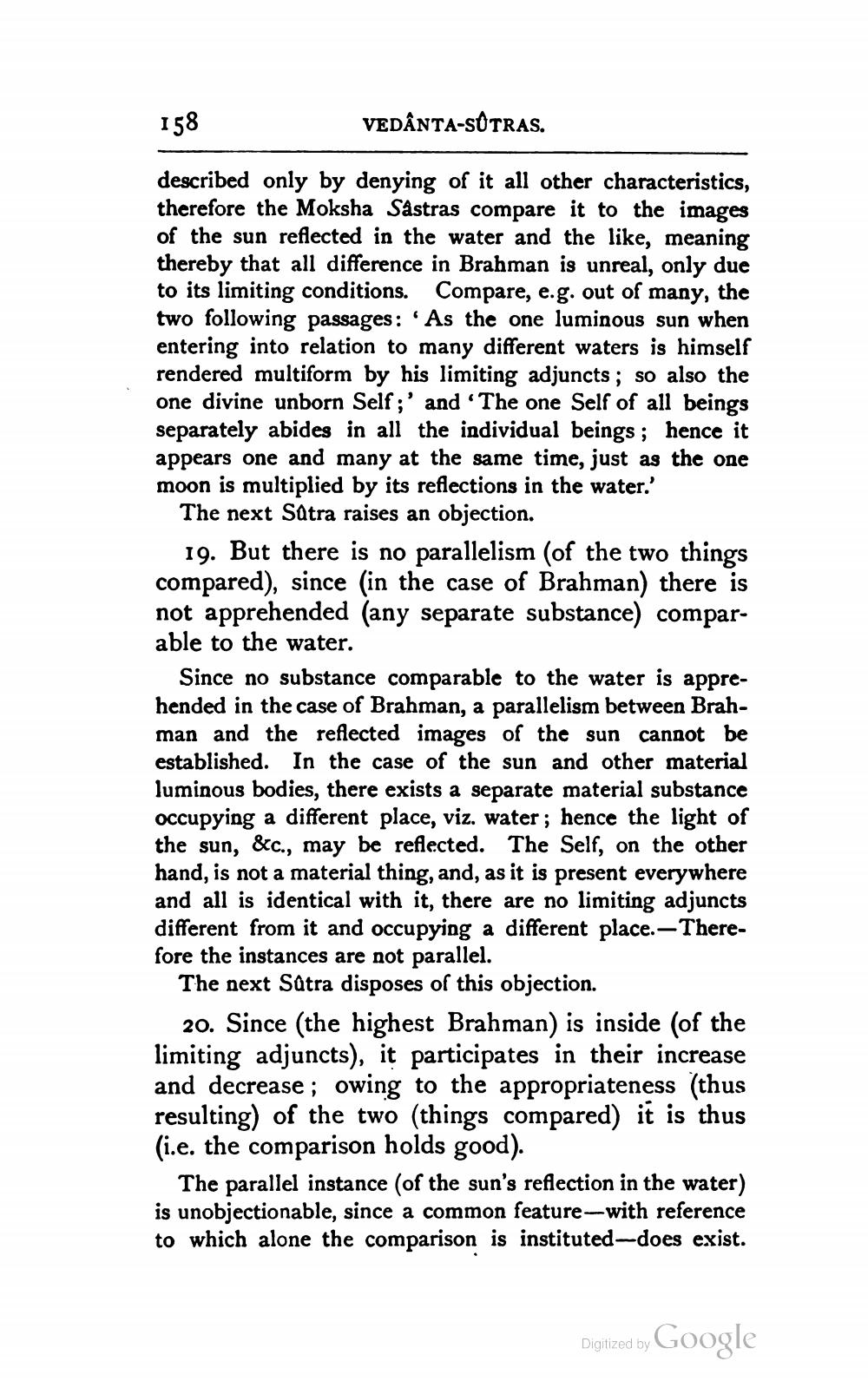________________
158
VEDÂNTA-SOTRAS.
described only by denying of it all other characteristics, therefore the Moksha Sastras compare it to the images of the sun reflected in the water and the like, meaning thereby that all difference in Brahman is unreal, only due to its limiting conditions. Compare, e.g. out of many, the two following passages: 'As the one luminous sun when entering into relation to many different waters is himself rendered multiform by his limiting adjuncts; so also the one divine unborn Self;' and 'The one Self of all beings separately abides in all the individual beings; hence it appears one and many at the same time, just as the one moon is multiplied by its reflections in the water.'
The next Satra raises an objection.
19. But there is no parallelism (of the two things compared), since (in the case of Brahman) there is not apprehended (any separate substance) comparable to the water.
Since no substance comparable to the water is apprehended in the case of Brahman, a parallelism between Brahman and the reflected images of the sun cannot be established. In the case of the sun and other material luminous bodies, there exists a separate material substance occupying a different place, viz. water; hence the light of the sun, &c., may be reflected. The Self, on the other hand, is not a material thing, and, as it is present everywhere and all is identical with it, there are no limiting adjuncts different from it and occupying a different place. Therefore the instances are not parallel.
The next Satra disposes of this objection.
20. Since (the highest Brahman) is inside (of the limiting adjuncts), it participates in their increase and decrease ; owing to the appropriateness (thus resulting) of the two (things compared) it is thus (i.e. the comparison holds good).
The parallel instance (of the sun's reflection in the water) is unobjectionable, since a common feature-with reference to which alone the comparison is instituted-does exist.
Digitized by
Digized by Google




